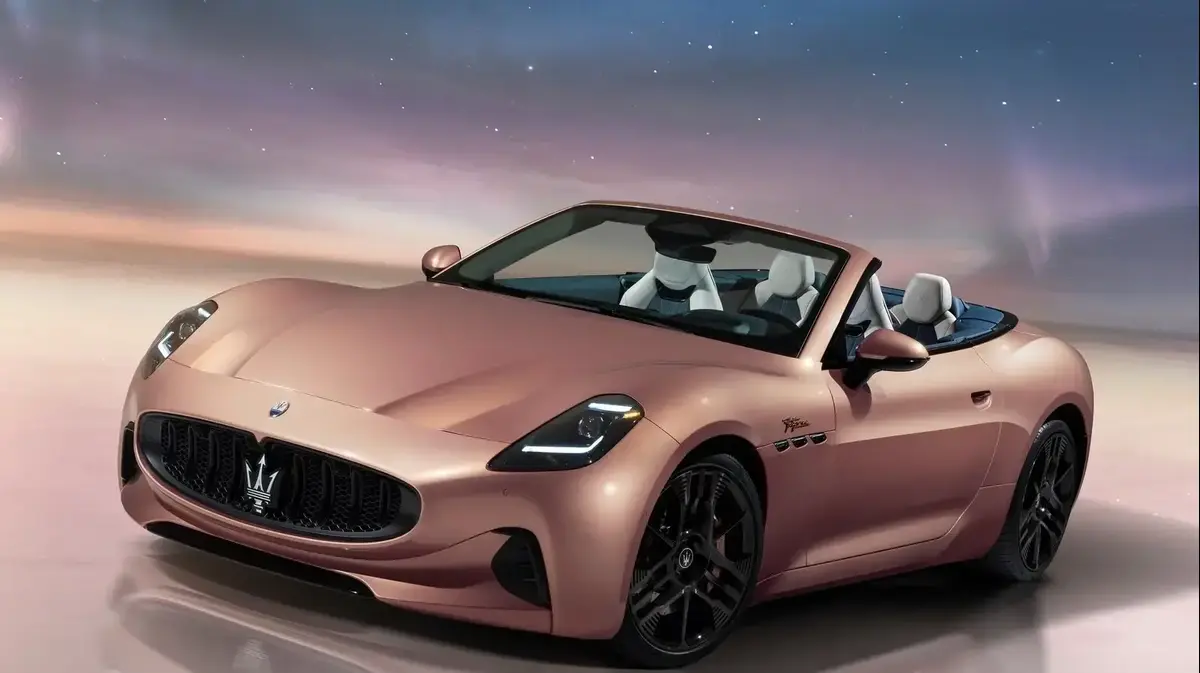This share of the so-called global CO2 residual budget, broken down to Germany, is an important parameter to prevent certain temperature thresholds such as the 1.5 degree limit from being exceeded.
Merz, who was only elected CDU party leader a few weeks ago, replied that it was "basically to be answered with yes" that this remaining budget for Germany "represents a binding target for the climate policy of the CDU".
With this commitment, Merz had suddenly placed himself at the forefront of the climate movement: With annual CO2 emissions of around 810 million tons, the statement by the CDU leader was tantamount to saying that the Federal Republic should be climate-neutral by around 2026.
The current federal government is aiming for this by 2045, the old one, still led by a CDU chancellor, only wanted to achieve this until 2050 – 25 years later than Friedrich Merz.
Unfortunately, the general public did not notice this at the time (which is also a media problem, as I described here using this example at the beginning of last year).
A missing Plan B
Climate champion Friedrich Merz?
According to the research by colleagues Tim Neumann, Jonas Schaible, Sara Sievert and Gerald Traufetter, there is not much left of this illusion for the current issue of SPIEGEL.
So far, the party leader has mainly explained what is not possible.
He says: "The expansion goals of the current federal government are unrealistic." - "We simply do not have the staff who would be able to install an exponential further expansion of wind energy and solar energy today." - "We have to get involved deal with the question: What do we do if things cannot realistically go that quickly.«
What he doesn't say: what the alternative is.
He answered evasively to SPIEGEL's specific questions.
For example, which "latest forms of nuclear energy" that people keep talking about is he referring to?
When could they be operational?
The answer: »Here we are primarily concerned with openness to technology in research.
Anyone who prematurely determines the energy production of the future based on the current state of research is denying our country any research competence.« So far, so non-binding.
Jens Spahn, after all the deputy leader of the Union faction responsible for climate in the Bundestag, agrees in a similar way: The government wants to generate four fifths of its electricity from renewable energies by 2030, and all of it from 2045.
What does the Union want?
"It is the privilege of the opposition that two and a half years before the election you don't have to provide an explanation for everything," says Spahn.
"I can't yet say conclusively what percentage of electricity can come from renewables in 2040 and how much has to come from other sources."
Even if the research is quite sobering: I definitely recommend reading it.
If you like, we will inform you once a week about the most important things about the climate crisis - stories, research results and the latest developments on the biggest issue of our time. You can subscribe to the newsletter here.
The topics of the week
Orientation of the party: How serious is the CDU with climate protection?
The CDU wants to make a name for itself as a climate party.
But the Union has no answer to central questions – and CDU leader Merz makes little attempt to change that.
How lignite is dividing the Saxon Kenya coalition: Kretschmer on a riot, Greens just as
"Insensitive, cold, ruthless": In the dispute over the coal phase-out, the CDU and Greens in Saxony make serious accusations against each other - and break up on the open stage.
Runs on battery technology: This train marks the beginning of a new railway
age. The electric revolution has reached the railways: The world's first line operation with modern battery-powered trains is scheduled to begin in Schleswig-Holstein in the summer.
The diesel era could end much sooner than expected.
250 kilometers off the coast: Denmark allows CO₂ storage under the North Sea
The Danish government has given several companies the green light to store CO₂ under the seabed.
It's about millions of tons of carbon dioxide a year.
Dispute over climate protection: coalition partner attacks Minister of Construction Geywitz
In the traffic light coalition, there is displeasure with Minister of Construction Klara Geywitz.
The Greens demand more commitment to climate protection from the social democrat - and more initiative towards the federal states.
Stay Confident.
Yours sincerely, Kurt Stukenberg,
Head of Science Department













